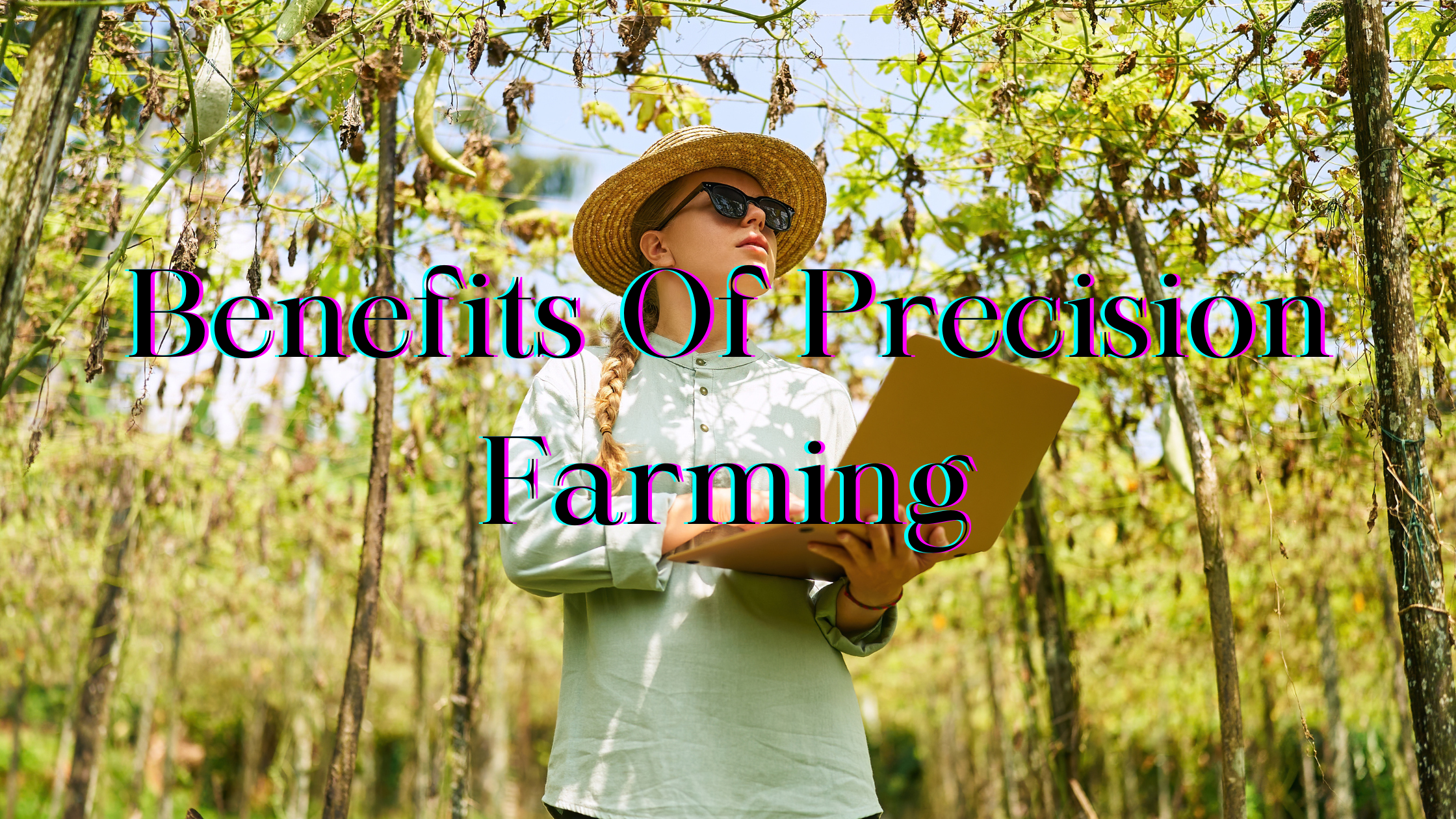
Maximizing Yield and Sustainability – The Power of Precision Farming Techniques
Benefits of Precision Farming
Introduction to Precision Farming: Revolutionizing Agriculture
The introduction of Precision Farming marks a significant turning point in agriculture, revolutionizing traditional farming methods. The benefits of Precision Farming extend beyond the field, impacting the environment by reducing the use of chemicals and water. This innovative approach leverages technology to optimize crop yield and resource management.
Through the precise application of data-driven techniques, farmers can make informed decisions regarding planting, irrigation, and fertilization. This not only maximizes crop productivity but also minimizes resource wastage, resulting in more sustainable farming practices. Additionally, it enhances the economic viability of farming operations by increasing yields and reducing operational costs.
As technology continues to advance, Precision Farming is set to play a pivotal role in ensuring food security for a growing global population while promoting sustainability in agriculture. Embracing this paradigm shift is essential for modern agriculture to thrive in an ever-changing world.
Technological Advancements: Tools for Precision in Farming
The realm of agriculture has witnessed a remarkable transformation, thanks to the advent of advanced technologies that underpin Precision Farming. This approach relies on a diverse array of cutting-edge tools and techniques designed to enhance the accuracy and efficiency of farming practices.
GPS-guided tractors, drones, and soil sensors are among the arsenal of technological advancements that empower farmers to make highly precise decisions. These tools provide real-time data on soil conditions, crop health, and weather patterns, enabling farmers to tailor their interventions precisely.
The benefits of Precision Farming are substantial. By optimizing inputs such as water, fertilizers, and pesticides, farmers can significantly reduce wastage and environmental impact. Moreover, the use of these technologies translates into higher yields, ultimately bolstering the economic viability of agricultural operations.
Embracing these tools is not just a step towards modernization, but a strategic move towards sustainable and efficient farming practices. You can also learn about Permaculture farming.
Data-Driven Decisions: Enhancing Crop Management
In the realm of modern agriculture, Precision Farming emerges as a game-changer, driven by data-driven decision-making. This approach leverages a wealth of real-time information to finely tune crop management strategies. Through soil and weather sensors, farmers receive invaluable insights into the specific needs of their crops.
This translates to precise interventions, from irrigation scheduling to the application of fertilizers. Such meticulous planning not only boosts crop health and yield but also curtails wastage of resources. The benefits of Precision Farming in crop management are manifold. It allows for a more efficient use of water and nutrients, leading to cost savings and environmental conservation. Nitrogen plays a pivotal role in all types of farming.
Additionally, it fosters healthier and more robust crops, ultimately contributing to greater farm profitability. By embracing data-driven methodologies, farmers are not only staying ahead in the technological race but also ensuring sustainable and prosperous farming practices for the future.
Resource Efficiency: Optimizing Water and Fertilizer Usage
In the world of agriculture, Precision Farming stands out as a beacon of resource efficiency. It harnesses technology to streamline the use of critical resources like water and fertilizers. Soil sensors, combined with GPS-guided systems, allow farmers to deliver water precisely where it’s needed, preventing wastage and ensuring crops get the right amount.
Likewise, with the help of precision equipment, fertilizers can be applied in optimal quantities, avoiding excess that could harm the environment. The benefits of Precision Farming in resource management are palpable. By using water, fertilizers and microbes in farming more judiciously, farmers can cut costs and reduce their environmental footprint.
This not only ensures sustainability but also bolsters the economic viability of farming operations. Embracing Precision Farming is not merely a technological leap, but a strategic move towards more efficient, sustainable, and economically viable agriculture.
Environmental Impact: Reducing Agricultural Footprint
Precision Farming has emerged as a powerful tool in minimising the environmental footprint of agriculture. By employing cutting-edge technologies, farmers can make precise decisions about resource application, thus significantly reducing waste and environmental impact. Soil sensors and GPS-guided equipment allow for pinpoint accuracy in the distribution of water, ensuring that every drop is optimally utilised.
Likewise, fertilizers can be applied in the right quantities, avoiding excess runoff that can harm nearby ecosystems. The benefits of Precision Farming in terms of environmental impact are substantial. By minimising resource wastage, farmers play a crucial role in conserving water and preserving soil quality.
This not only safeguards the environment but also ensures the long-term sustainability of agricultural practices. Embracing Precision Farming is not just a technological advancement, but a strategic move towards a more eco-conscious and sustainable agricultural future.
Future Prospects: Sustaining Agriculture through Precision Techniques
The future of agriculture lies in the hands of Precision Farming. This advanced approach revolutionizes traditional methods by integrating technology into every aspect of farming. With precision techniques, farmers can make informed decisions, right down to the individual plant level.
This maximises output while using the fewest resources possible. By precisely applying water, fertilizers, and pesticides, wastage is drastically reduced, making it an eco-friendly choice. Furthermore, the ability to monitor crop health in real-time allows for timely interventions, preventing potential losses.
The benefits of Precision Farming extend far beyond the present, ensuring the sustainability of agriculture for generations to come. As the global population continues to grow, adopting precision techniques is not just a choice, but a necessity to feed the world while preserving our precious resources. Embracing Precision Farming paves the way for a prosperous and sustainable agricultural future.